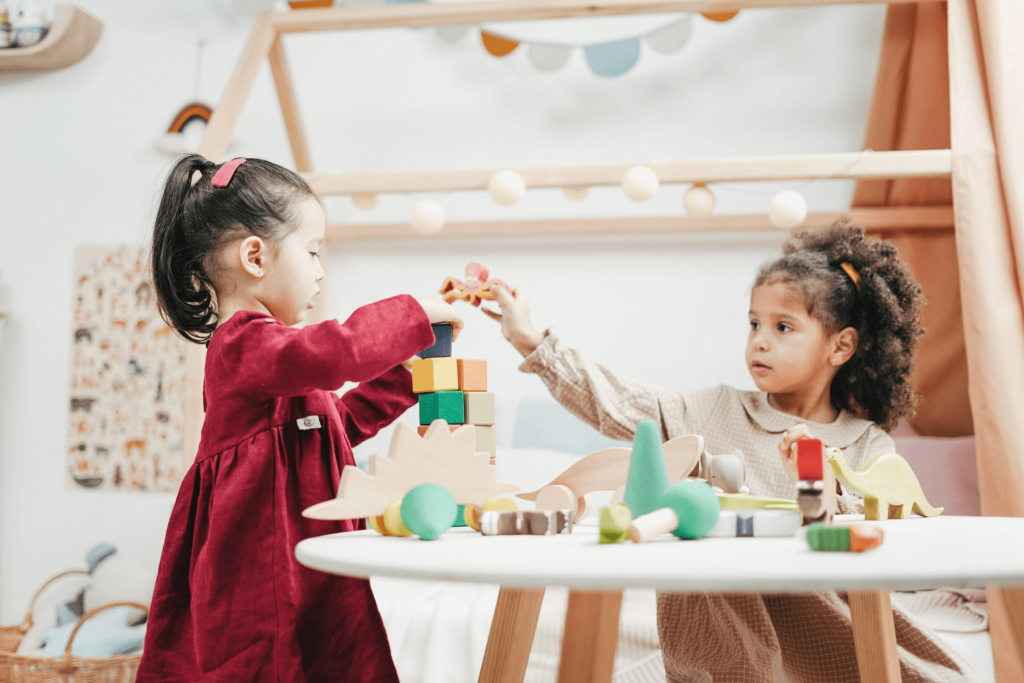
Imagine your child running into the daycare classroom, eager to join their friends in play. They laugh and giggle as they share toys, build forts, and create new worlds together. Group play is a magical time for children, and it’s not just fun but also essential for their social development.
In this article, we’ll explore the benefits of group play at daycare and share some tips for helping your child get the most out of this experience.
Sharing Is Caring
Group play is the ideal setting for children to learn some basic social skills like sharing, cooperation, and compromise. This is especially true for kids who grew up without siblings in the same age bracket.
When kids play together, they navigate the give-and-take of interactions, taking turns and learning to respect one another’s needs and preferences.
These are important social skills that children need to learn to get along with others and succeed in school and life.
Communication Skills
Group activities are also perfect for helping children learn how to communicate with others. They have to express their thoughts and feelings somehow, whether through words, gestures, or non-verbal cues.
Finding ways to express themselves is also an integral part of developing their creativity. If they don’t know how to express themselves in the ways they are familiar with, they’ll search for a new way to do so.
These interactions help with developing strong communication skills later in life.
Empathy & Understanding
Group play isn’t just necessary for communication and cooperation; it’s also vital for letting them see the world outside of their little bubble. Daycares and schools have children from vastly different backgrounds, personalities, and viewpoints.
As children interact with each other, they begin to understand and empathize with others. This helps them develop a broader sense of the world around them and put aside the differences that may exist between themselves and others.
Conflict Resolution Skills
Conflicts are an inevitable part of play. When children disagree, they need to learn how to communicate their needs and feelings in a respectful way. They also need to learn how to compromise and find solutions that work for everyone involved.
Creativity & Problem-Solving
Group play often involves imaginative scenarios and role-playing. This type of play encourages creativity as children collaborate to create stories, games, and scenarios while using their imagination to bring them to life.
Group activities also frequently require kids to solve problems. These could be as simple as building something with blocks or solving puzzles. Kids learn how to analyze situations, develop strategies, and, most importantly, work together to achieve a common goal.
Making Friends
Group play gives children the opportunity to interact with other children and build friendships. These early friendships provide emotional support and companionship, nurturing their emotional development.
As they grow, they’ll find it easier to interact with new people they meet and expand their social circle.
A Sense of Belonging
Group play at daycare helps make children feel like they belong somewhere. When in a more ‘public’ space than their homes, they learn that they are part of a community. This contributes to their self-identity and creates a healthy sense of belonging.
Group play at daycare is far more than just a fun and entertaining activity; it is a vital component of a child’s social development. It’s a learning experience that develops important skills a child needs to move on into the world beyond daycare and find success.
